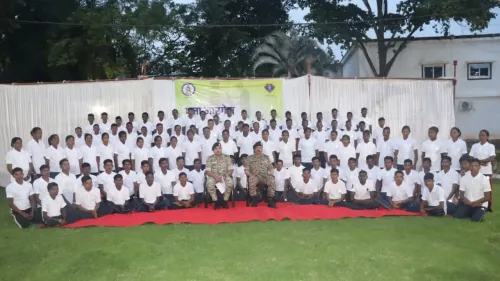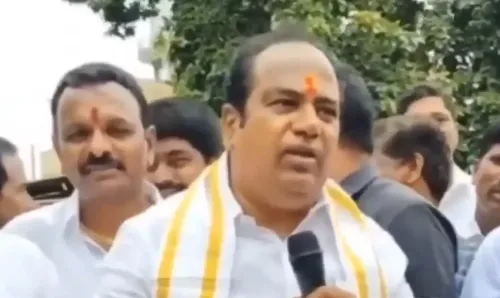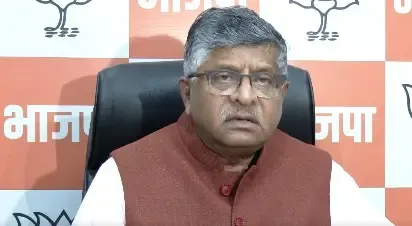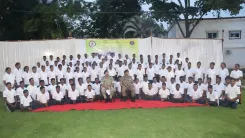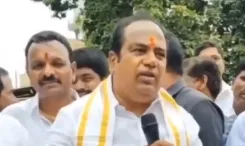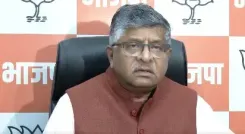Does the RSS Align Ideologically with the BJP?
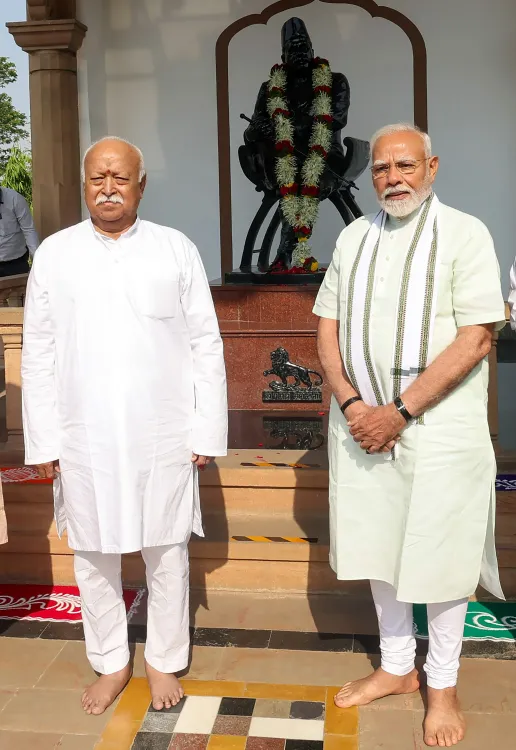
Synopsis
Key Takeaways
- The RSS emphasizes social change over direct political involvement.
- Mohan Bhagwat's speech called for national unity and self-reliance.
- The RSS aims to spread its initiatives like Vyakti Nirman nationwide.
- The organization believes it has achieved only 30% of its goals.
- Active social awareness is essential for meaningful change.
New Delhi, Oct 2 (NationPress) The Rashtriya Swayamsevak Sangh (RSS) celebrated the significant occasion of Dussehra this year, transcending mere anniversary festivities. Those anticipating a lengthy address from Sarsanghchalak Mohan Bhagwat were left disappointed, especially if they sought a direct political statement aimed at the government.
During his address at the Vijayadashami Utsav in Nagpur, Bhagwat touched upon various political, diplomatic, and economic challenges. He also underscored the necessity for national unity and self-reliance. He urged vigilance against both internal and external threats and stressed the significance of sustainable development in the face of environmental shifts and natural disasters.
Despite the RSS providing numerous leaders to the Bharatiya Janata Party (BJP), including Prime Minister Narendra Modi, it maintains a distance from direct political engagement.
A close associate of the organization recalled a pivotal moment in the late 1940s, when there was a debate on whether the RSS should engage in politics. Some members advocated for direct involvement to establish a political presence.
However, Madhavrao Sadashivrao Golwalkar, affectionately referred to as “Guruji” and the second Sarsanghachalak from 1940-1973, firmly opposed this shift.
Golwalkar believed that if the organization became political, he would prefer to restart from scratch by establishing new shakhas and engaging with the populace with clearly defined aims and objectives.
The RSS holds that politics cannot instigate the necessary social transformation. As the current Sarsanghchalak articulated recently, “Social awareness and a shift in societal behavior are essential for meaningful change. These changes cannot be achieved through mere speeches or texts; active social consciousness is required, and those involved must exemplify this change.”
In late August, he stated that governance rests with the BJP, and “the RSS can merely offer suggestions.”
While the RSS serves as the ideological foundation for the political party, with senior members acting as organizational secretaries within various levels of the party or its affiliated organizations, it avoids direct political participation.
This principle has its roots in the teachings of the early years. Today, the organization believes it has realized only about 30 percent of its objectives, according to a close functionary.
“We commemorate our achievements and recount our tasks; it's not a time for celebration,” he remarked.
In layman’s terms, the goal is to elevate the nation to its highest potential by organizing society as a whole, rather than merely existing as an organization within it. This sentiment was echoed in Bhagwat's remarks, as he noted, “Thus, in this centenary year, the Sangh will strive to ensure that its 'Vyakti Nirman' initiative spreads nationwide, and the 'Panch Parivartan' program, aimed at fostering gradual social changes, is embraced by all segments of society through the examples set by Swayamsevaks.”
Consequently, despite addressing issues such as terrorism, diplomacy, and social reforms, no direct political guidance was offered to the current government.

